F-words in Practice
Family & Clinician Voices is the section that provides examples of how parents, youth with disabilities and clinicians are talking about and applying the F-words. Click the button below.
Family & Clinician Voices
The following list shows the organizations in Canada that are using the F-words in daily practice. Please click on the organization’s name to be redirected to a description of how that organization is applying the F-words.
Are you using the F-words in your organization?
If you are currently using the F-words or have created materials about the F-words, we encourage you to connect and share them with us! Many of the tools found on our F-words Knowledge Hub came as a result of sharing materials and ideas. If you have developed any F-words tools and/or resources, we kindly ask that you use the following referencing format:
1) Your organization's copyright information including the copyright symbol, the year and the authors or name of your organization
(e.g., © 2019 Tomas, Coburn, Cross)
2) Citation of the original F-words paper:
Rosenbaum, P., & Gorter, J. W. (2012). The ‘F‐words’ in childhood disability: I swear this is how we should think!. Child: care, health and development, 38(4), 457-463.
3) Link to CanChild's F-words Knowledge Hub:
https://www.canchild.ca/f-words
To share your F-words tools and/or resources with us, please email fwords@mcmaster.ca
Educational Outreach Visits
Beginning in 2018, CanChild has started moving the F-words ideas into Ontario school boards. To date, the F-words team has done educational outreaches with the following School Boards: Dufferin-Peel, Limestone, Algonquin & Lakeshore, and French and English of Eastern Ontario, with the interest of using the ‘F-words’ in schools only continuing to rise! Participants from these school board educational sessions have indicated both interest and positivity towards using the F-words in schools, as well as the perceived usefulness of these outreach visits.
Testimonials
“Parent input was wonderful! Really highlights material. CanChild knowledge Hub and Tools were great! Goal sheets should be implemented immediately in schools for our children.”
“This information presented will further our resources to our children and ensuring that we consider the whole student when determining goals, plans, and strategies.”
“Having a parent speak to their personal experiences directly in the context of the F-Words was a great addition. The content would be good to share with teachers and administration as a reminder to work on functional personal goal vs. academic goals that may not be meaningful to a family.”
“I enjoyed the group work - small group discussions. Loved hearing the family stories and how the 6 Fs have been implemented.”
Current Uptake of the F-words Across Ontario Schools
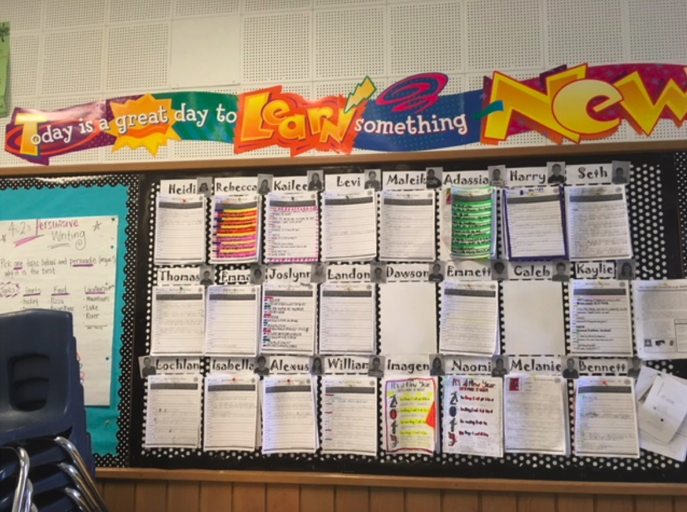
The above picture is from a grade 4 classroom in the Bluewater District School Board. All students in this classroom completed the F-words Goal Sheet as a class activity. This activity allowed students to develop goals based on each of the six F-words and share with one another, in turn, allowing the teacher and students to learn more about each other’s goals.
“So often as teachers were expected to focus solely on academics. Our Professional Development is academic based, the report cards, the IEP expectations… But we all know that we’re are teaching so much more than academics. Using this F words framework could enable us to view the ‘whole child’ and frame our teaching to their strengths and needs holistically. I would use it in Health and weekly classroom meetings, or even in girls club. In those meetings you need a framework to work from. This could be perfect!” - Grade 5 teacher in Meaford, Ontario.
“So the Individualized Education Plan (IEP) is a structured tool that can’t be changed, but it doesn’t mean that you can’t still frame a conversation and gather information using the 6 Fs framework. Even referencing to put things in brackets and link back to the 6 Fs. I think we just have to open our minds up a little bit if we want to create that continuum of language across sectors, including education.” - SLP for Preschool-aged children in Kingston, Ontario
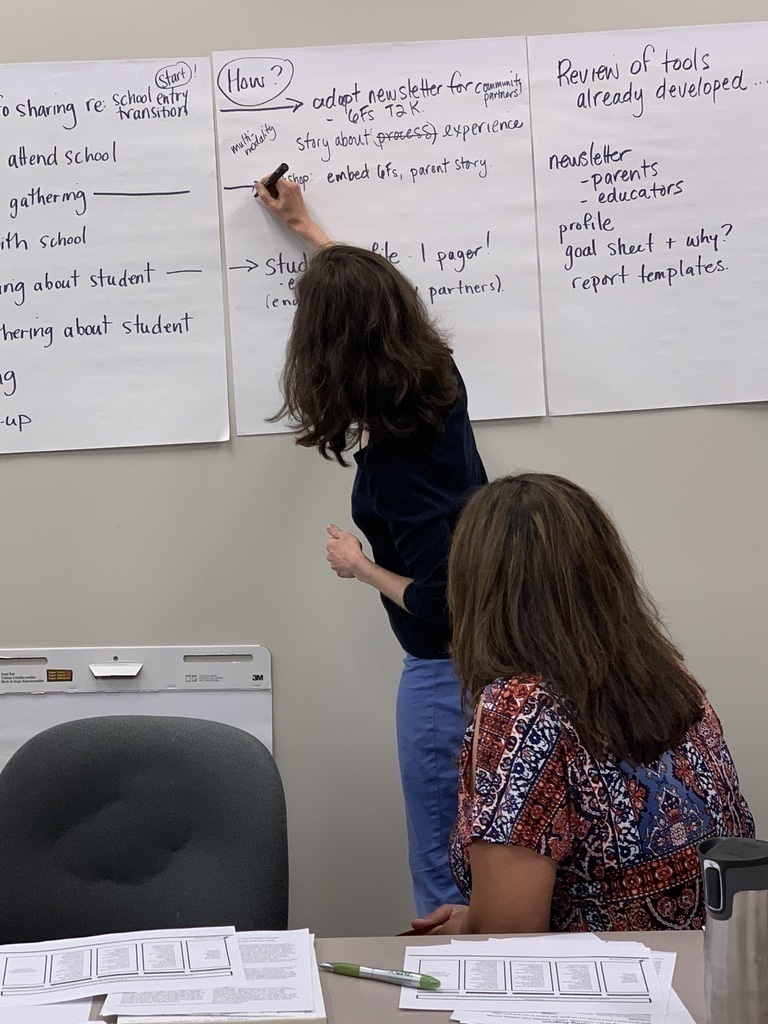
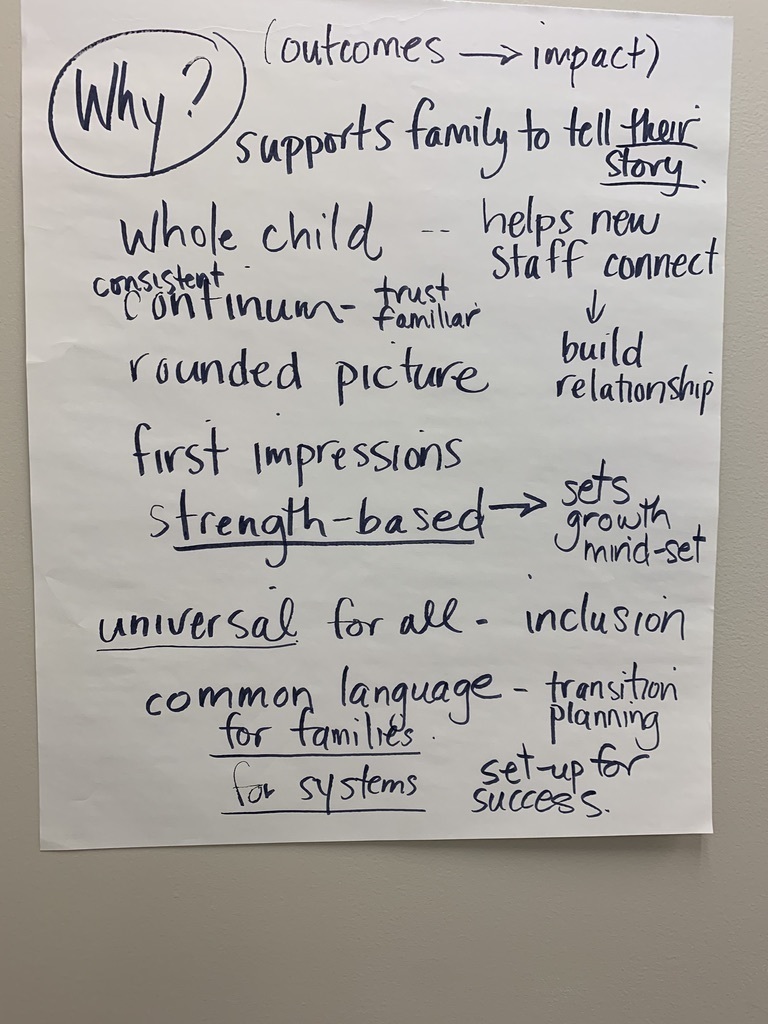
The above pictures are from a multidisciplinary F-words workshop held in Brockville, Ontario. Service providers, including educators, were planning how to use the F-words in the transition to kindergarten process. One school service provider from this workshop said, “The F-words allow school staff to change their perspective when looking at the child. Instead of seeing only deficits, they see all components of who that child is.” As well, many workshop attendees noted that the F-words are useful for all children at school, and not just those who are identified as having exceptionalities.
The CanChild F-words team is currently working to increase uptake of the F-words across schools in Ontario. If you work within the school system and are interested in how the F-words can be applied to your practice, please contact CanChild at fwords@mcmaster.ca. If you work within the school system and are currently implementing the F-words in practice, we’d love to hear from you! Please email fwords@mcmaster.ca to share with us how you are using the F-words in practice (e.g., developing and/or adapting F-words tools).
International uptake of the F-words in Schools

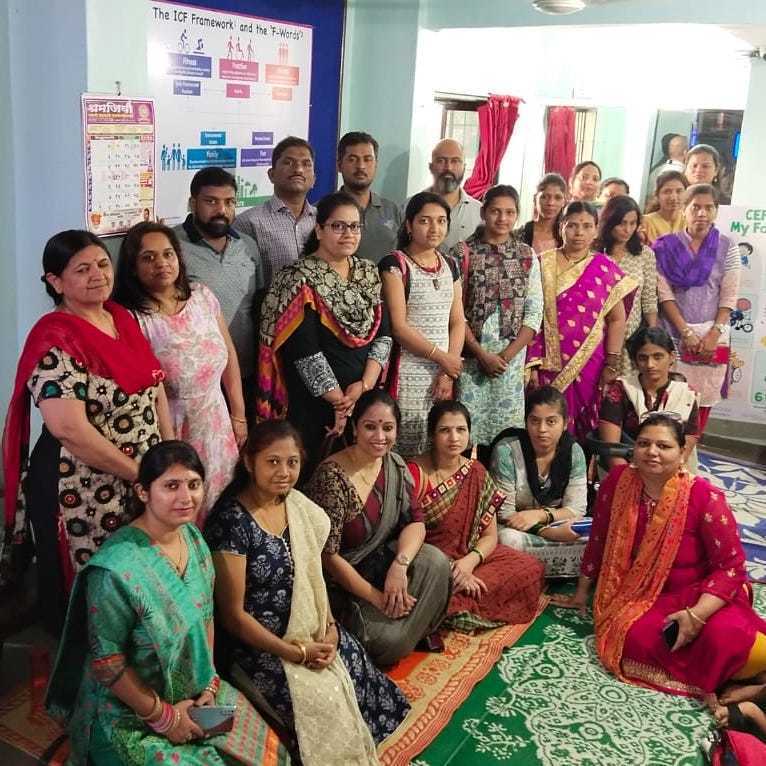
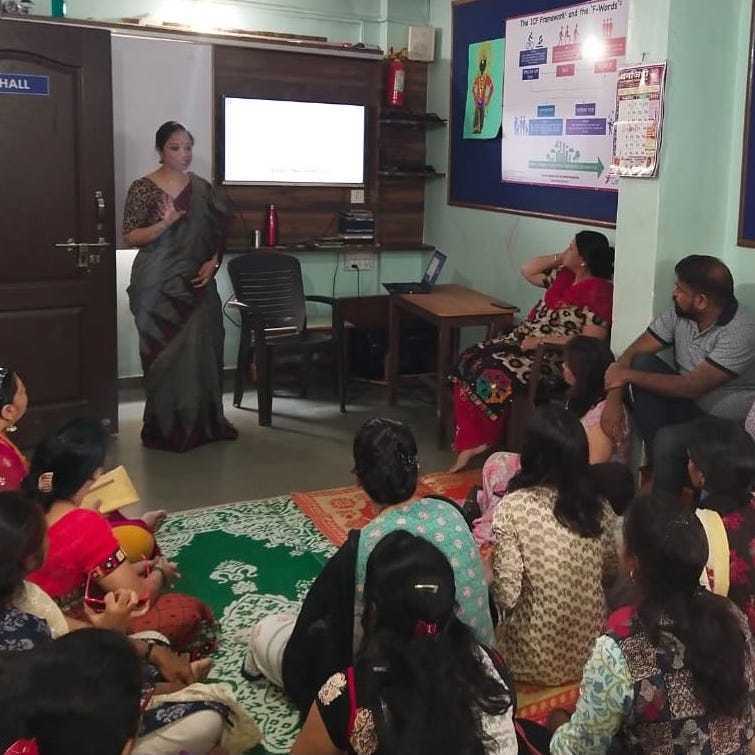
The photos above are taken at the Sarth Foundation, DAWN Autism School, Center For Children With Multiple Disabilities in India.
Puja Dhande gave a one hour talk to the parents of children with developmental differences and introduced them to the International Classification of Functioning, Disability and Health Framework (ICF) and the F-Words for Child Development.
"I gave a perspective on why we need to think beyond the so called 'normal' or 'delayed' and focus more on the routine age appropriate functions of the child to enhance participation. I introduced the different F-Words templates on goal settings, F-Words collage, etc... The talk was received very well. The parents were highly motivated and shared that they can now look at things differently with regard to their children."
Puja Dhande is an Occupational Therapist with more than 10 years of experience in the practice. She brings a holistic approach in handling children with various developmental differences. She believes in the uniqueness of every child and is strictly committed to the mission of World Health Organization's ICF.
What are international service providers saying about the ‘F-words’?
“We have introduced the idea and got parents to contribute pictures to our F-words wall of their child/family participating.” - Occupational Therapist, United Kingdom
“We use the F-words to assist in goal setting, and translating outcomes into other aspects of the client life.” - Physiotherapist, Australia
“The F-words speak a language that everyone at this multidisciplinary table can understand, including children and families.” -Physiotherapist, Australia
“The F-words form [the] outline of patient interviews [and] give a more strengths-based rather than problem-focused view” - Physician, United States
F-words for Child Development: Lessons Learned
Since the creation of the F-words for Child Development in 2011, there has been flourishing interest and uptake worldwide. For this reason, our CanChild F-words Research and Knowledge Translation Team has had the opportunity and pleasure to present on the F-words in hundreds of workshops, presentations, and invited talks around the world. Through these presentations, and correspondence with interested researchers, parents/caregivers, and health professionals globally, we have learned about several questions, concerns, and misunderstandings regarding the F-words. In this document, we report and respond to these inquiries and illustrate the power of these comments to help us improve our ideas.
We thank people who take the time to share their ideas with us – together we are stronger. If you have any questions about the F-words, or further concerns and/or comments, please do not hesitate to reach out to our F-words Team at fwords@mcmaster.ca.
